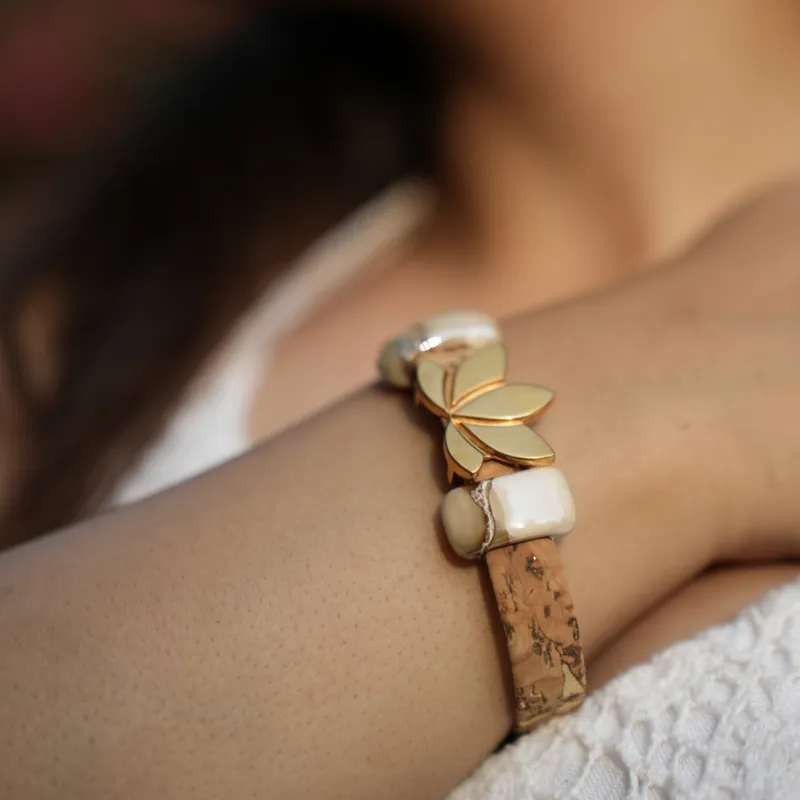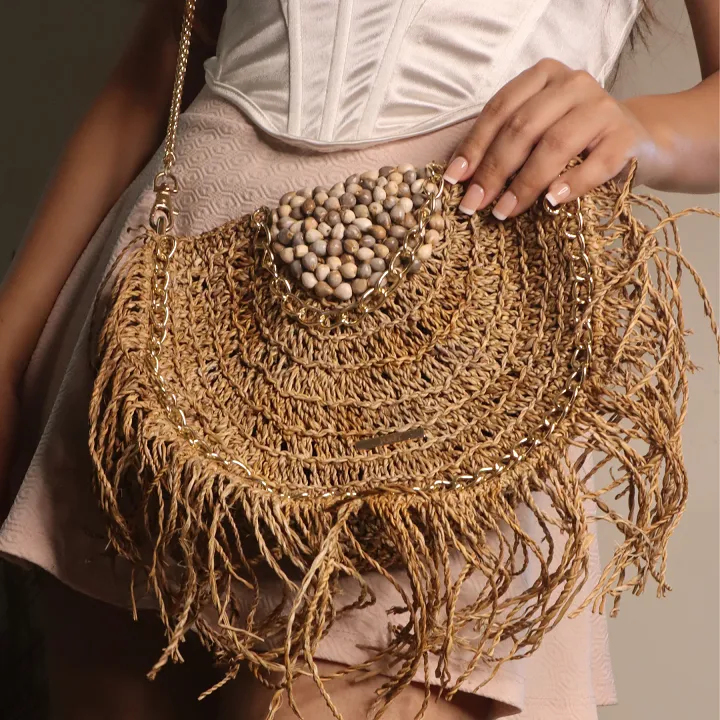This brand is redefining fashion accessory space with banana bark bags, cork jewellery
Mumbai-based Foret works with artisans in India and across the world to create fashion accessories from banana skin and cork. It won PETA’s best vegan wallet award in 2022.
As sustainable choices continue to gain traction, the world of fashion is seeing a shift towards eco-friendly alternatives. However, one common perception persists--these choices often lag behind in terms of style and accessibility compared to the conventional options. This is especially true for fashion accessories, where sustainable brands are seen as secondary choices.
Foret, a vegan and sustainable fashion brand, is on a mission to change the game. Started by Supriya Shirsat Satam in 2019, the brand wants to create products that are not just an alternative to conventional products, but aims to challenge the appeal of fast fashion brands.
Foret currently promotes natural fibers that are earth-friendly and vegan. Starting with a few SKUs, the Mumbai-based brand has since expanded its product range to over 200 SKUs. The brand initially started with cork handbags and wallets, and now offers wallets, tote bags, handbags, and jewellery for men, women, and children.

Foret's jewellery
Recently, Foret introduced a new collection of handbags crafted from banana bark. It uses cork and banana bark as the primary raw materials for the products.
“We conducted a trial project last year with a limited edition, and it received a very good response in the market. This success prompted us to introduce an entire range,” Satam tells SMBStory.
The brand is currently collaborating with 300 rural women artisans based in Rajasthan, Maharashtra, and other parts of South India. It is also collaborating with around 50 artisans based in Europe.
Some of its products have also caught the attention of fashion magazines and have been worn by several Bollywood celebrities, including Vicky Kaushal, Kartik Aaryan, and Siddharth Malhotra, among others.
How it started?
Satam, an engineer with an MBA in marketing, spent nearly a decade leading Mobile Commerce and Marketing at Jet Airways (from 2005 to 2016). Despite her professional success, she was always interested in art and craft, and wanted to do something in that area. This interest was partly ignited by her family’s engagement in the textile sector, which worked closely with artisans.
During her professional journey, she recognised a significant gap in the fashion accessories market. She realised that while there were many sustainable and organic options available for clothing, food, and cosmetics, there were not many alternatives in the fashion industry, especially for accessories such as handbags.

Foret's bag
Satam noticed that customers could either use traditional animal skin leather or polyurethane leather (vegan leather). However, both these choices raised environmental concerns, she says.
“This gap piqued my curiosity and I started to seek out earth-friendly materials that could be used in the accessories sector,” says Satam.
This made her start Foret in 2019 with an initial investment of around Rs 1 lakh.
“We can’t change what consumers like or make them responsible for their choices. What’s important is designing products that fit into people's lives and are easy for them to adopt,” she says.
Identifying the right materials
Drawing from her background as a landscape artist, Satam held an artistic vision and wanted the products to mirror nature. However, it was challenging for her to find the right materials to work with.
“When I encountered cork and banana skin as a material, it resonated closely with this vision. They capture the imprints left by the sun or rain,” says the founder.
Foret creates jewellery from cork, which is sourced from the Mediterranean region in Europe. It is naturally resistant to water and dust, which ensures its durability, she says.
“Oak trees are hand-harvested every 9 years, which allows them to rejuvenate and live for years. Hence, trees are not harmed in the process. Cork is truly a responsible alternative to animal-derived leather,” says the founder.
Foret’s jewellery has a combination of cork and other premium materials like porcelain, 18-carat gold, or mixed metal, resulting in a distinctive fusion.
The main element of the bags is banana skin, which is derived from the stems of the banana plant. These stems are harvested once the banana tree has produced its fruit. The brand also uses linen for the bag interiors, further involving handloom artisans in the production process.
The handbags are priced in the range of Rs 4,500 and Rs 14,000, while the jewellery ranges from Rs 800 to Rs 17,000. The founder says that pricing falls on the higher side due to the intricate processes involved. The raw materials are not mass-produced, incurring associated costs.

Foret's banana bark bag
“Every bag stands as an individual piece, showcasing a range of weaving patterns and textures. Local artisans play a pivotal role in all the processes involved like collecting and cleaning the stems and converting them into twines,” says Satam.
Foret witnessed over 100% revenue growth YoY in FY22 and more than 20% growth in FY23. With new product launches, it expects a whopping 200% growth in FY24. The founder refused to disclose the exact revenue details.
The brand currently operates with a team of six members, and all bag designs are created in-house by the founder. Foret’s products have garnered wide attention, and have been showcased in publications such as Vogue, Cosmopolitan, Hello, and Man’s World, among others. It competes with other fast-fashion brands like H&M and Zara, which make straw and jute bags.
Foret has also won the PETA Vegan Fashion Award for Best Vegan Wallets in 2022, and it was a global finalist for SDG-12 by the European Technology Chamber.
Foret sells its products through its website and through niche ecommerce platforms like Amala Earth. For offline sales, it has collaborated with brands that follow similar principles, with more collaborations on the way. Although the founder did not disclose the brand names, the move to offline space is anticipated in the next few months.
Plans ahead
Going ahead, Foret is actively looking for materials to create products with a broader market appeal in terms of pricing. While the premium and luxury markets are covered, it aims to lower costs by innovating with new materials while maintaining aesthetics and eco-friendliness.
As of now, it is seeing sales mainly from cities like Mumbai, Delhi, Bengaluru, Ahmedabad, and Chennai.
“We are also considering collaboration with international brands as we have received positive feedback from international organisations. The products hold the potential to succeed in the global market,” says Satam.
Additionally, Foret aims to partner with retail stores in India to enhance its offline visibility.
“In the coming months, we will introduce laptop sleeves made from banana skin, and work to expand other range of accessories,” Satam concludes.
Edited by Megha Reddy







